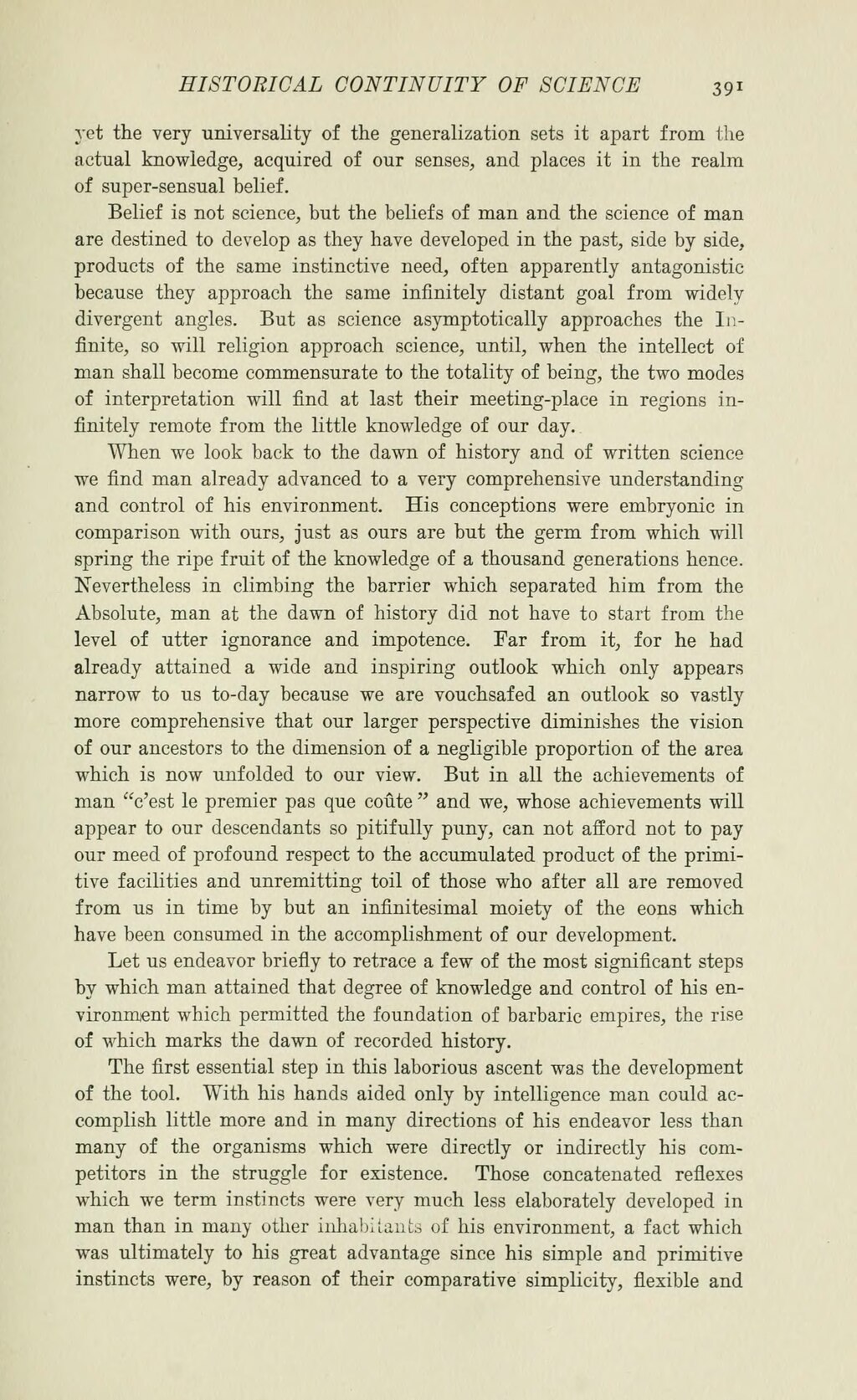HISTORICAL CONTINUITY OF SCIENCE 391
}'et the very imiversality of the generalization sets it apart from the actoal knowledge^ acquired of our senses^ and places it in the realm of super-fiensual belief.
Belief is not science^ but the beliefs of man and the science of man are destined to develop as they have developed in the past^ side by side, products of the same instinctive need, often apparently antagonistic because they approach the same infinitely distant goal from widely divergent angles. But as science asymptotically approaches the In- finite, so will religion approach science, until, when the intellect of man shall become commensurate to the totality of being, the two modes of interpretation will find at last their meeting-place in regions in- finitely remote from the little knowledge of our day.
When we look back to the dawn of history and of written science we find man already advanced to a very comprehensive understanding and control of his environment. His conceptions were embryonic in comparison with ours, just as ours are but the germ from which will spring the ripe fruit of the knowledge of a thousand generations hence. Nevertheless in climbing the barrier which separated him from the Absolute, man at the dawn of history did not have to start from the level of utter ignorance and impotence. Far from it, for he had already attained a wide and inspiring outlook which only appears narrow to us to-day because we are vouchsafed an outlook so vastly more comprehensive that our larger perspective diminishes the vision of our ancestors to the dimension of a negligible proportion of the area which is now unfolded to our view. But in all the achievements of man 'Vest le premier pas que cofite '^ and we, whose achievements will appear to our descendants so pitifully puny, can not afford not to pay our meed of prof oimd respect to the accumulated product of the primi- tive facilities and unremitting toil of those who after all are removed from us in time by but an infinitesimal moiety of the eons which have been consumed in the accomplishment of our development.
Let us endeavor briefly to retrace a few of the most significant steps by which man attained that degree of knowledge and control of his en- vironment which permitted the foundation of barbaric empires, the rise of which marks the dawn of recorded history.
The first essential step in this laborious ascent was the development of the tool. With his hands aided only by intelligence man could ac- complish little more and in many directions of his endeavor less than many of the organisms which were directly or indirectly his com- petitors in the struggle for existence. Those concatenated reflexes which we term instincts were very much less elaborately developed in man than in many other inhabitants of his environment, a fact which was xdtimately to his great advantage since his simple and primitive instincts were, by reason of their comparative simplicity, flexible and
�� �
